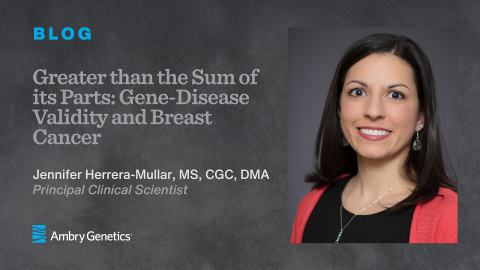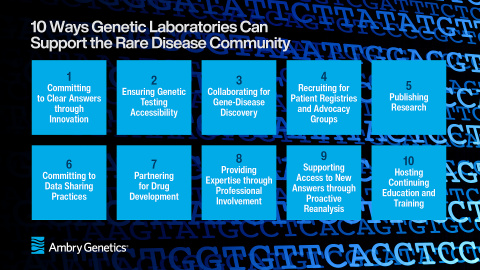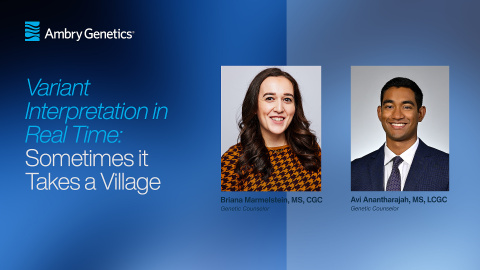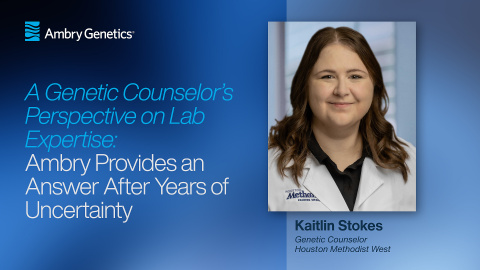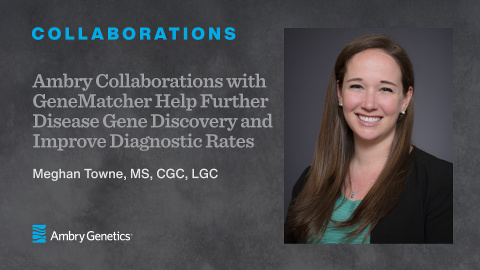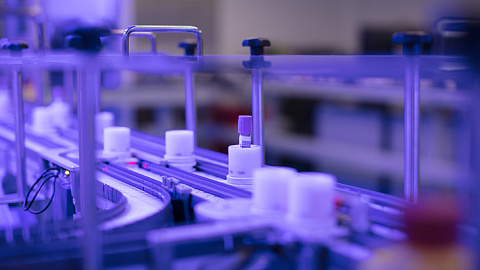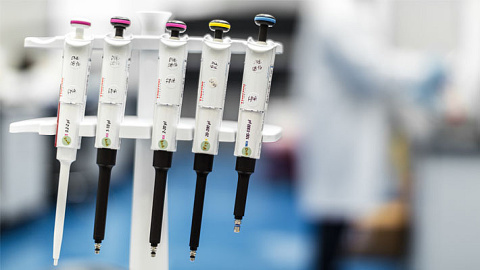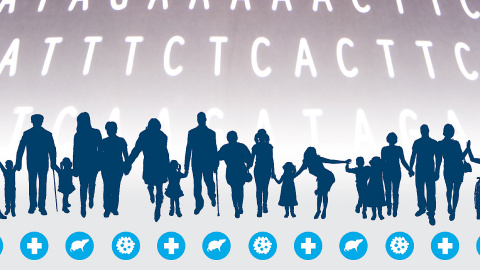- By Jennifer Herrera-Mullar, MGC, CGC, DMA
- Posted March 5, 2024
Greater than the Sum of its Parts: Gene-Disease Validity and Breast Cancer
One in every eight women will develop breast cancer in her lifetime.1 Considering there are 167.5 million women currently living in the United States,2 on a population level, that is a large number of women who will develop breast cancer. The vast majority of breast cancer cases are due to a combination of factors including, but not limited to:…
- By Kelly D. F. Hagman, MS, CGC
- Posted February 29, 2024
10 Ways Genetic Laboratories Can Support the Rare Disease Community
Rare diseases are not as rare as one might think—there are more than 6,000 identified rare diseases affecting over 300 million people worldwide. Over 70% of rare diseases have a genetic cause, and as a leading commercial laboratory, we understand the important role we play in the rare disease community. Every day, we provide genetic test results…
- By Catherine Schultz, MS, CGC
- Posted February 26, 2024
From Awareness to Action: Supporting Rare Disease Today and Everyday
February 29th, the rarest day in the calendar, serves as a beacon of hope and solidarity for those affected by the rarest of diseases. Rare Disease Day is dedicated to raising awareness about rare diseases and the millions of individuals around the world affected by them. It is also a time to shine a light on the incredible work being done by…
- By Carrie Horton, MS, CGC
- Posted February 23, 2024
Variant Interpretation in Real Time: Sometimes it Takes a Village
Every individual's genetic makeup is unique, containing the blueprint for their health, including susceptibility to diseases and potential response to treatments. But understanding your genes is like deciphering a complex code. DNA varies slightly from person to person, and interpreting the medical significance of those differences, or variants,…
- By Meagan Farmer
- Posted February 21, 2024
A GC’s Perspective on Lab Expertise: Getting Answers After Years of Uncertainty
Kaitlin Stokes is a genetic counselor at Houston Methodist West in Houston, TX. She sees patients with personal or family histories of cancer that may be due to an underlying hereditary cause. We recently connected with Kaitlin about her role, and she shared, “I love what I do because I feel like I’m helping people. I’m giving them control…
- By Meghan Towne, MS, CGC, LCGC
- Posted January 30, 2024
Ambry Collaborations with GeneMatcher Help Further Disease Gene Discovery and Improve Diagnostic Rates
The Problem of Unsolved Cases While our knowledge of human genetics has grown significantly, many gaps remain in our understanding of genes and their contribution to human disease.1-3 We have a lot to learn: • Only about 16% of all the genes in the human body have an established disease association. • The genetic cause is known for…
- By Marcy Richardson, PhD
- Posted December 19, 2023
The Path to Clinical Relevance: What a Study on RAD51C Reveals about Resolving VUS
Everyone has genetic variation….and lots of it. It’s part of what makes us each unique. Genetic variation is defined by differences in our own genome and a reference genome. (The fact that there is only one reference genome selected to compare to all of our collective, rich, human diversity is a topic for another post.) Another source of genetic…
- By Shuwei Li
- Posted August 21, 2018
Science In 60: Tumor Characteristics Provide Evidence for Mismatch Repair Variant Pathogenicity
It is estimated that as many as 1 in 300 people may carry a gene mutation associated with Lynch syndrome. This is important to know because Lynch syndrome also puts individuals at a higher risk for many other cancers including colon, uterine, ovarian, pancreatic, stomach, liver and bladder cancer. The good news is genetic testing can determine…
- By Rhonda Lassiter
- Posted August 10, 2018
Science in 60: Attacking a VUS from Multiple Angles
Neurodevelopmental disorders (NDDs) involve a wide range of symptoms and severity. Individuals may present with multiple indications including epilepsy, autism, intellectual disability, developmental delay, dysmorphic features, and other congenital anomalies. The broad and nonspecific nature of NDDs can lead to significant diagnostic challenges.…
- By Deepti Babu, MS, CGC
- Posted June 7, 2017
Improve Patient Care by Reducing Ambiguity in Gene-Disease Relationships
New discoveries are rapidly expanding our understanding of the human genome, and diagnostic laboratories use different approaches to interpret this knowledge. A challenge for laboratories is translating vast amounts of published evidence to determine the clinical validity of gene-disease relationships, which need to be integrated into a patient’s…
